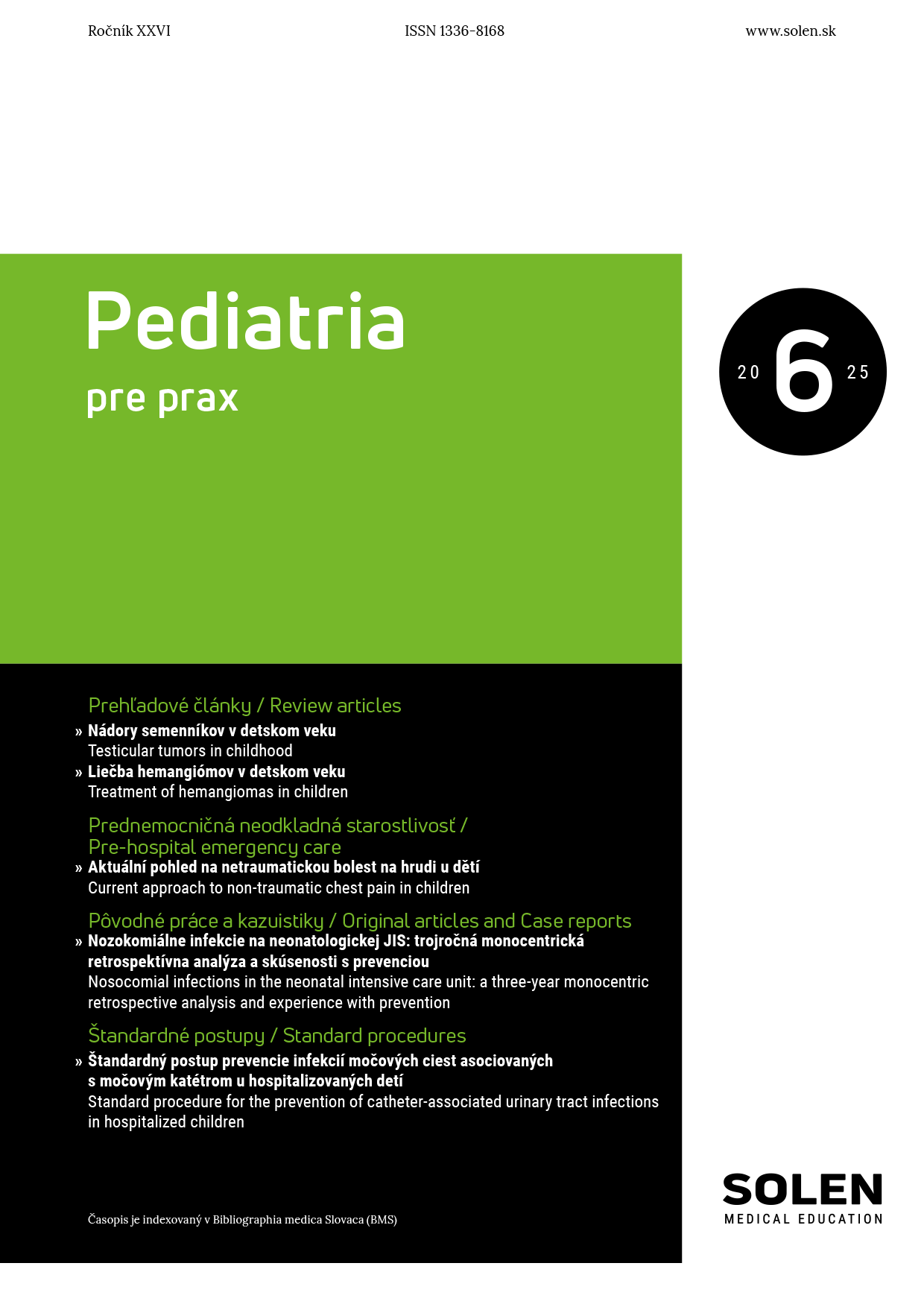Pediatria pre prax 2/2025
Specifics of anesthesia in children with cerebral palsy
Cerebral palsy is a non-progressive neurological disorder characterized by motor function impairment, frequently associated with muscle spasticity, epilepsy, gastroesophageal reflux, and chronic respiratory diseases. Anesthetic management of patients with cerebral palsy requires thorough preoperative preparation, tailored pharmacotherapy, and a multidisciplinary approach. Major perioperative risks include difficult airway management, challenging venous access, and altered sensitivity to anesthetic agents. Regional anesthesia combined with multimodal analgesia can reduce opioid requirements and minimize postoperative complications. Furthermore, effective interdisciplinary collaboration optimizes perioperative care and improves patient outcomes.
Keywords: cerebral palsy, anesthesia, perioperative management, regional anesthesia, multimodal analgesia

















